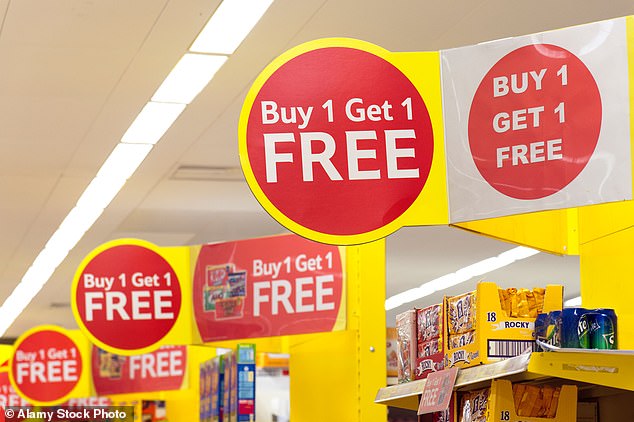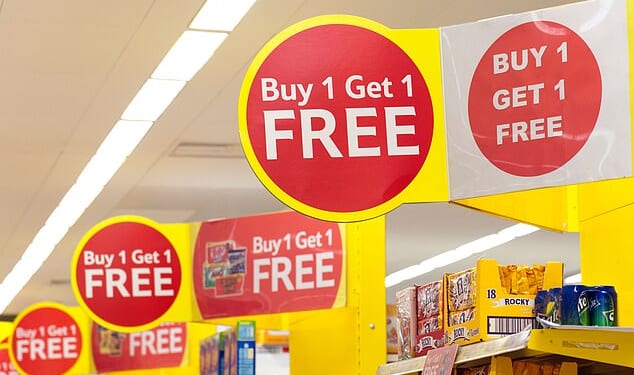Price-slashing supermarket deals on junk food will be banned from today as part of the Government’s long-delayed crackdown on obesity.
‘Buy one, get one free’ offers on sweets, crisps, sugary drinks and other snacks will be outlawed in England, alongside free refills of fizzy drinks in restaurants and cafes.
The rules apply to supermarkets, bigger high street shops and online retailers, and come after years of delays amid the cost-of-living crisis.
Ministers insist the measures are a crucial step in tackling obesity—particularly among children.
A Department of Health and Social Care spokesman said: ‘Obesity robs children of the best possible start in life, sets them up for a lifetime of health problems and costs the NHS billions.’
It will be followed in January by a ban on online adverts for unhealthy food and drink, and restrictions on TV advertising before 9pm.
The new rules are based on a government classification of foods deemed to drive obesity—covering chocolate, sweets, cakes, pastries, ice creams, crisps and some pizzas and fishfingers, as well as sugary soft drinks.
Obesity rates have soared in recent decades, with more than a quarter of adults and a fifth of Year six pupils now classed as obese.

Price-slashing supermarket deals on junk food will be banned from today as part of the Government’s long-delayed crackdown on obesity
Greg Fell, president of the Association of Public Health Directors, welcomed the move, calling it ‘long overdue’ but warned it was only a first step.
‘Multi-buy promotions don’t save people money—they encourage them to spend more. They normalise buying more, and more often,’ he said.
Research has shown such restrictions can work.
A University of Leeds study found that after supermarkets were banned from placing unhealthy items at checkouts and aisle ends in 2022, sales dropped by around two million products a day.
But campaigners say the Government is still a long way from meeting its pledge to protect children from junk food advertising, with critics calling for tighter rules on sports sponsorship, investment in active travel and healthier school food.
The retail sector has largely accepted the changes, with big chains such as Tesco and Sainsbury’s already introducing curbs.
Andrea Martinez-Inchausti, of the British Retail Consortium, said: ‘Most of our members are already compliant.
Retailers are helping customers make healthier choices through better calorie labelling, reformulation of products and portion control.’
Similar restrictions are due in Wales next year, with Scotland expected to follow.
The policy was first announced by Boris Johnson in 2021 as part of a UK-wide strategy—but has been watered down and delayed repeatedly, with ministers blaming the cost-of-living crisis for giving the food industry more time to prepare.










